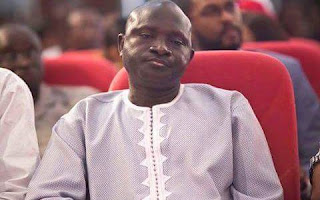 |
| Former Interior Minster Sonko seeking asylum in Sweden |
During his decade of service to the dictatorship as Interior Minister, Mr. Sonko built a network of relationships across Western Europe with immigration authorities, especially in the past several years, when the mass exodus of African migrants across the Mediterranean that included a disproportionate number of young Gambians fleeing their country because of the deplorable human rights environment coupled with declining living standards.
Both Jammeh and Sonko have benefited financially from the bilateral aid package the regime has been signing with countries like Spain, Italy and Malta to help stem the migration tide. Monies meant for protects like skills training are pocketed by corrupt immigration officials. Patrol boats and motor vehicles provided by donors meant for coastal and border patrols have been converted into either private or military use. Some of these assets have been traced as far away as coastal Morocco where they are employed in the lucrative fishing industry. Jammeh's wife is Moroccan.
These bilateral funds have enriched corrupt officials like Ousman Sonko over the years. Despite our opposition, some of these European countries continue to enter into bilateral agreements that are regularly breached both in letter and spirit by a very corrupt and incompetent dictatorial regime of which Ousman Sonko has been the second most important member, after Jammeh. Sources close to the former minister are suggesting that this network of friends and associates that he was able to cultivate over a decade may have played - directly or indirectly - a role in his escape to Sweden where he's filed for asylum.
Mr. Sonko saw the walls closing in on him when he planned and coordinated the arrest and torture of Solo Sandeng under the supervision of the Director General of the National Intelligence Agency (NIA) Yankuba Badjie in April this year that led to the death in custody of the United Democratic Party's (UDP) youth leader and member of its executive committee.
The passage of a Resolution by the European Parliament last May that strongly condemned the ongoing and increasing violence against political opposition and called on all members of the EU to consider freezing all non-humanitarian assistance and the possible imposition of travel ban was the unmistakable signal that harden and loyal followers of Jammeh seemed to have been waiting for, to be convinced that the EU means business.
Ousman Sonko and senior officials in similar circumstances did not want to get stuck behind, what has suddenly become, enemy lines, should a travel ban be imposed. The presence of the 4-person European Parliament mission in Banjul only served as a reminder of the inevitability of the gauntlet being thrown by individual members of the European Union.















